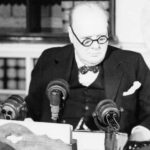Insiders from the Trump administration have expressed growing anxiety over special envoy Steve Witkoff’s private meetings with Russian President Vladimir Putin, according to a report from the New York Post that cites anonymous sources familiar with the situation.
Witkoff, who previously worked as a real estate lawyer and is recognized for his tough negotiation skills, has reportedly met with Putin on four occasions since February without the guidance of seasoned diplomatic advisors or approved interpreters, deviating from traditional U.S. diplomatic norms.
During their most recent meeting at the Kremlin last Friday, Putin was accompanied by senior aide Yury Ushakov and Kirill Dmitriyev, the head of the Russian Direct Investment Fund. A video from the Kremlin of this meeting captured Witkoff asking if the individual sitting across from him at the table was “from the embassy.”
Initially, Witkoff was designated as the Middle East special envoy after Trump assumed office in January, but he has since taken on a broader role as ambassador-at-large, focused on negotiating a resolution to the conflict in Ukraine.
His direct and unregulated diplomatic approach has faced criticism from various political factions. Ukrainian President Volodymyr Zelensky and some Russian state media have both accused and praised Witkoff for aligning with Kremlin narratives.
Critics have also highlighted Witkoff’s lack of knowledge regarding the interpreters’ identities and backgrounds who were present during his meetings with Putin.
“He’s a decent guy, but a complete screw-up… he shouldn’t be doing this on his own,” a Trump administration official was quoted by the New York Post as stating.
Retired Army General Keith Kellogg, who was originally appointed as the special envoy for the Russia-Ukraine conflict, has been reassigned to serve solely as “special envoy for Ukraine,” resulting in the top U.S. negotiators having limited awareness of one another’s discussions, as reported by the tabloid.
“If Trump actually became serious about mediating an end to the Ukraine war, he should designate one individual to engage with both parties through shuttle diplomacy — ideally someone with substantial diplomatic experience,” remarked former U.S. Ambassador to Russia Michael McFaul on X. “Witkoff is merely delivering messages for Putin. He isn’t engaged in negotiations.”
Following Witkoff’s latest trip to Moscow and alerts from the State Department that the U.S. might reduce its role in mediation efforts, Putin suggested a 72-hour ceasefire aligned with Russia’s May 9 Victory Day commemoration.
Both Ukraine and the White House rebuffed this proposal, urging the Kremlin to agree to a 30-day ceasefire that U.S. officials first put forth after discussions in March. Putin rejected that offer.

